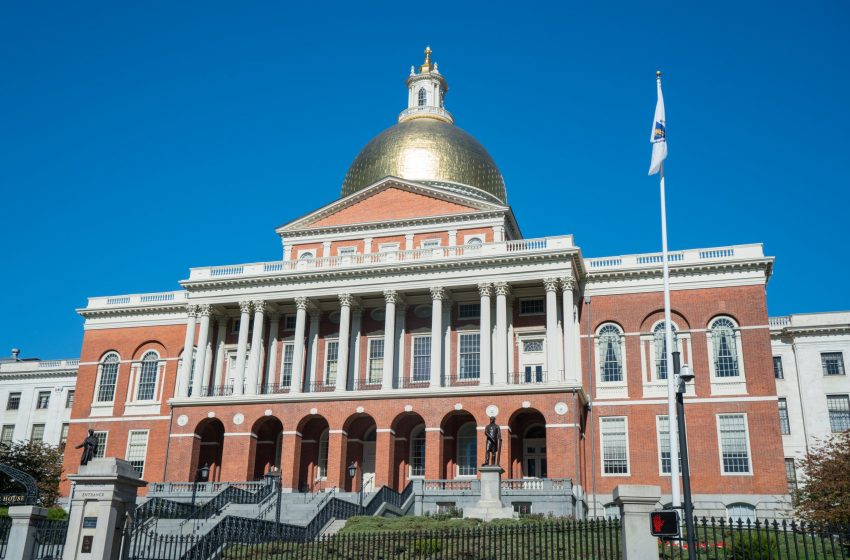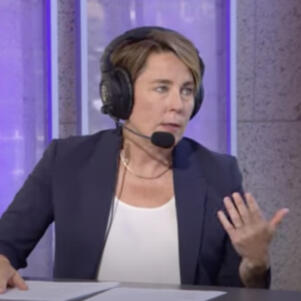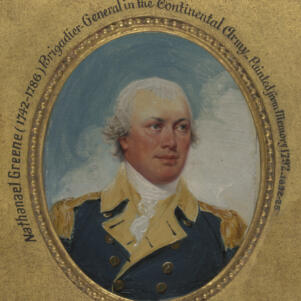No Republicans Need Apply
By Joseph Tortelli | May 14, 2019, 0:54 EDT

What happens when you establish a 15-member commission whose goal is to represent various geographical, political, and demographic backgrounds?
If you’re in Massachusetts, you appoint a group that tries to represent everyone. Everyone, that is, except Republicans.
The commission, ironically enough, is called the Citizens Commission, although excluding Republicans from citizenship seems a bit of a stretch, even in Massachusetts. The 15 Commission members were appointed by the five most powerful Massachusetts office holders: Governor Charlie Baker, Attorney General Maura Healey, Secretary of State Bill Galvin, Speaker of the House Robert DeLeo, and Senate President Karen Spilka. Each of the five officials named three appointees, yet not one filled a slot with a registered Republican.
The more aptly named No-Republicans Commission resulted from a 2018 ballot question aimed at overturning the 2010 United States Supreme Court Citizens United v. FEC ruling that protected First Amendment political speech rights. Liberal interest groups, who have long defended the power of union bosses to confiscate workers’ dues and turn those funds over to Democrats, expressed horror at the prospect of business corporations, non-profits, and other associations also being permitted to spend and comment on elections, while not coordinating expenditures with candidates. Of course, this is precisely what wealthy mainstream media corporations have been doing for decades. In Massachusetts, liberal multi-millionaire John Henry influences elections and public policy through his Boston Globe. In the nation’s capital, liberal plutocrat Jeff Bezos maximizes his political influence through his Washington Post.
In order to build support for overturning the Citizens United decision, activist Jeffrey Clements founded an organization called American Promise. Clements successfully led the drive for the anti-Citizens United ballot initiative that was approved by more than two-thirds of Bay State voters. Having previously worked under Democrat Attorneys General Scott Harshbarger and Martha Coakley, Clements was appointed to the newly-formed Commission by incumbent Democrat Attorney General Healey. According to Shira Schoenberg at MassLive.com, Clements called the 15 members a “ ‘great group’ that reflect Massachusetts’ diversity …” and then added: “The commission’s job is to make sure every Massachusetts citizen is heard, and that’s what we’ll do.”
Every Massachusetts citizen, except those conspicuously absent Republican citizens.
In addition to Clements himself, his American Prospect boasts one more member on the 15-person No-Republicans Commission. Another Healey appointee, Joyce Sanchez, had worked as the group’s Citizens Engagement Coordinator.
Representing the diversity of Massachusetts: Two officials from American Prospect; zero Republicans. Admittedly, the Commonwealth is not exactly brimming with Republicans. Still, one might go out on a limb and suggest that the Bay State includes a few more Republicans than American Prospect adherents.
The No-Republicans Commission has plenty of room for Democrats who occupy nine seats, while Unenrolled or Independent voters are relegated to a minority of six, despite constituting an absolute majority of state voters. Among his picks, Secretary Galvin chose longtime Democrat insider and former Congressman Michael Harrington. First elected to political office in 1960, the same year John F. Kennedy won the presidency, Harrington left Congress before Ronald Reagan won his first term. Another Democrat pol, Representative Carmine Gentile of Sudbury, was appointed by House Speaker DeLeo, undoubtably after the proverbial nationwide — or in this case, statewide — search that found the most qualified choice right in the Speaker’s own political domain. In a statement, the Sudbury Democrat pledges to “defend and strengthen the role of unions in our society while taking a strong stand on the corrupting influence of money in politics.”
A September 2014 report about the Democrat primary in The MetroWest Daily News described Gentile’s first election to the House: “Gentile enjoyed a more than two-to-one fundraising advantage over [opponent Brian] LeFort, according to records available from the Massachusetts Office of Campaign and Political Finance.” Apparently in Gentile’s estimation, a two-to-one funding advantage does not rise to a level demanding indignation about “the corrupting influence of money in politics.”
Democrat power brokers control 12 of the 15 appointments to the No-Republicans Commission, while Republican Governor Charlie Baker was awarded three selections. Baker, whose favorable poll numbers skyrocket through the stratosphere, chose two independents and squeezed yet another Democrat onto a Commission already weighed down with that party’s cohorts.
Among Baker’s choices was independent William Kilmartin, a former Massachusetts State Comptroller appointed during the last years of Democrat Mike Dukakis’s administration. Kilmartin also sits on the Board of Trustees of the misnamed Massachusetts Taxpayers Foundation, a big government lobbying group not to be confused with the genuinely pro-taxpayer Citizens for Limited Taxation.
Baker’s other independent nominee offers the best hope for the Commission. A United States Marine and businessman, Matthew McKnight will not be easily intimidated by Democrat politicians. In his “statement of interest,” McKnight talks about his Marine Corps oath to “protect and defend the Constitution,” and his “allegiance to the core values of the Constitution — namely a belief in individual liberty and respect for human dignity.” One expects McKnight to be the solitary spokesman for constitutionally protected rights on a Commission whose goal is to restrict political speech.
Baker’s Democrat appointee, Bopha Malone, ran in the primary for the Merrimack Valley congressional seat ultimately won by Lori Trahan. Malone’s statement at the Citizens Commission web site sounds like boilerplate Democrat rhetoric: “I believe that true reform is necessary to achieve a true democracy, and that big money in politics is the root of many of the problems we face as a country today.” Closing her statement, Malone says she intends to “help Massachusetts explore ways to reduce the power and influence of Big Money in politics.”
In their effort to remove money from politics, members of the No-Republicans Commission might start by reviewing funding for the Question 2 referendum of 2018, the campaign that created the Commission in the first place. In that election cycle, the group called People Govern, Not Money supported a “Yes” vote on Question 2 aimed at overturning Citizens United. The Not Money activists raised a tidy total of $330,771.65 and spent nearly every penny, effectively swaying the election outcome.
On the other side stood those well-funded reactionary forces who presumably want money rather than people to govern. Exactly how this works out is far from clear. But one gets the picture of greenbacks, not persons, making decisions.
If those campaigning to drive money out of politics could raise several hundred thousand, one can only guess how many millions were delivered by the real big money interests. No doubt panicked liberals would say they could have raised unlimited sums. The sky’s the limit.
How much did these scary corporate-types raise?
$0.00. Zero. Goose egg. Nil. Zip.
No, your eyes do not deceive you. Those who opposed Question 2 and its restrictions on speech in politics were able to raise a total of nothing. Paul Craney of the reform-minded advocacy group Massachusetts Fiscal Alliance did volunteer to debate and speak on the topic. With no funds to influence the election outcome, is it reasonable to conclude that opposing Question 2 really was all about people, and not about money?
In contrast, hundreds of thousands of dollars flowed to those who favored Question 2 as a step toward driving corporate funds — but, tellingly, not big labor money — out of politics. Additionally, the Not Money lobbyists had the valuable support and powerful endorsement of the state’s dominant media business, The Boston Globe. That’s the corporate entity owned by moneyed financier John Henry.
On the face of it, this seems paradoxical. Until one remembers: This is Massachusetts. Except in a handful of campaigns, the Democrat candidate raises more cash and outspends the Republican. Not just by a little, but by a lot. Frequently, Republicans even fail to field candidates because of the lopsided funding advantages enjoyed by liberal Democrats. Likewise on ballot questions, the liberal side routinely raises far more money than the conservative side.
It’s fitting that Republicans got shut out of the new commission. Only Democrats control the political outcomes of the No-Republicans Commission. Because they are bankrolled by big money, you can be sure Democrats will protect their own.
Joseph Tortelli is a freelance writer. Read other columns by Mr. Tortelli here.










